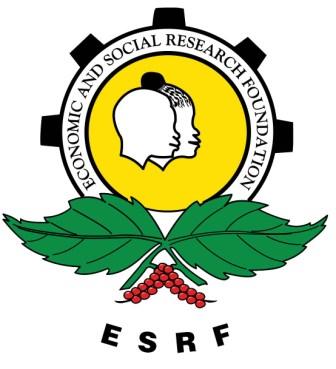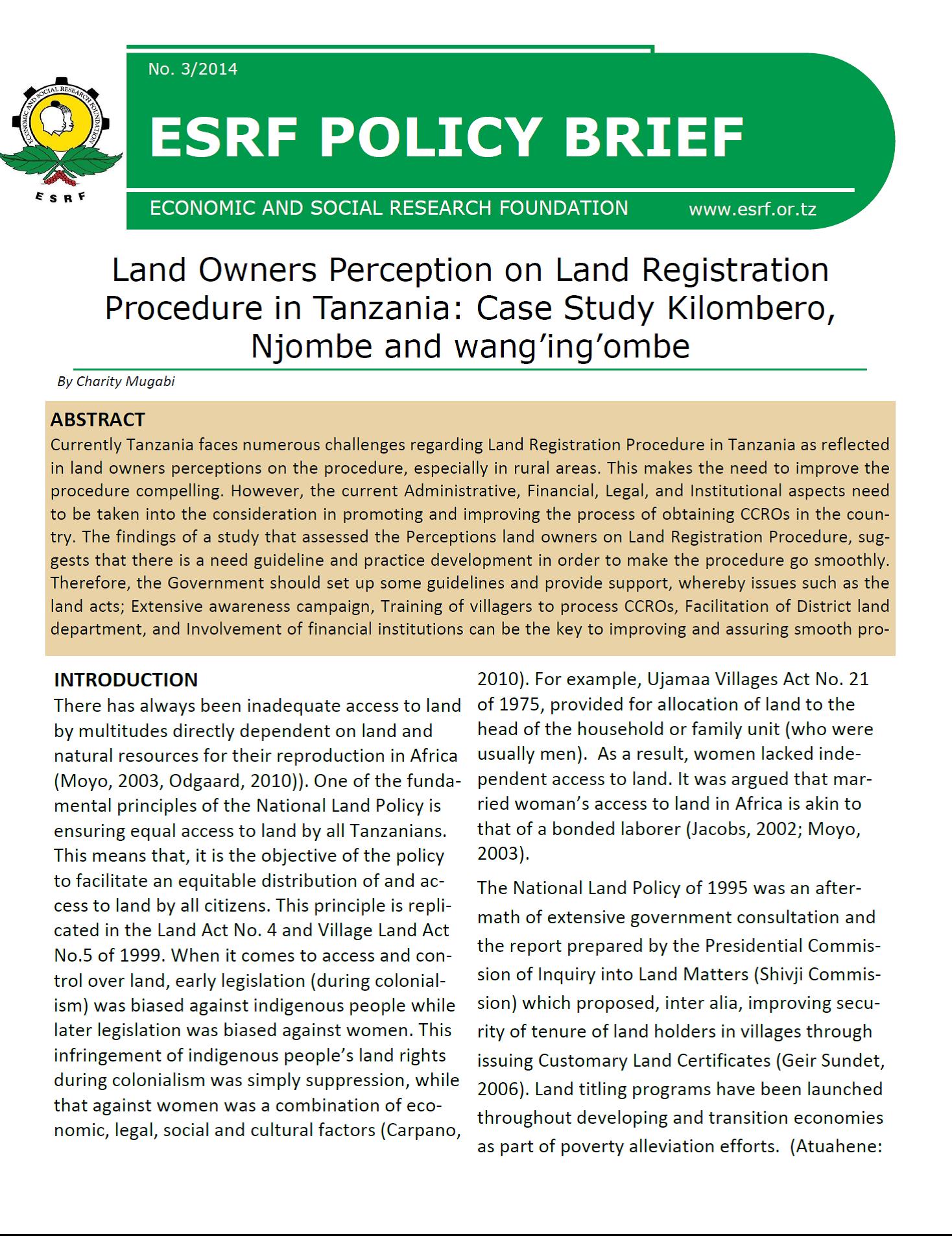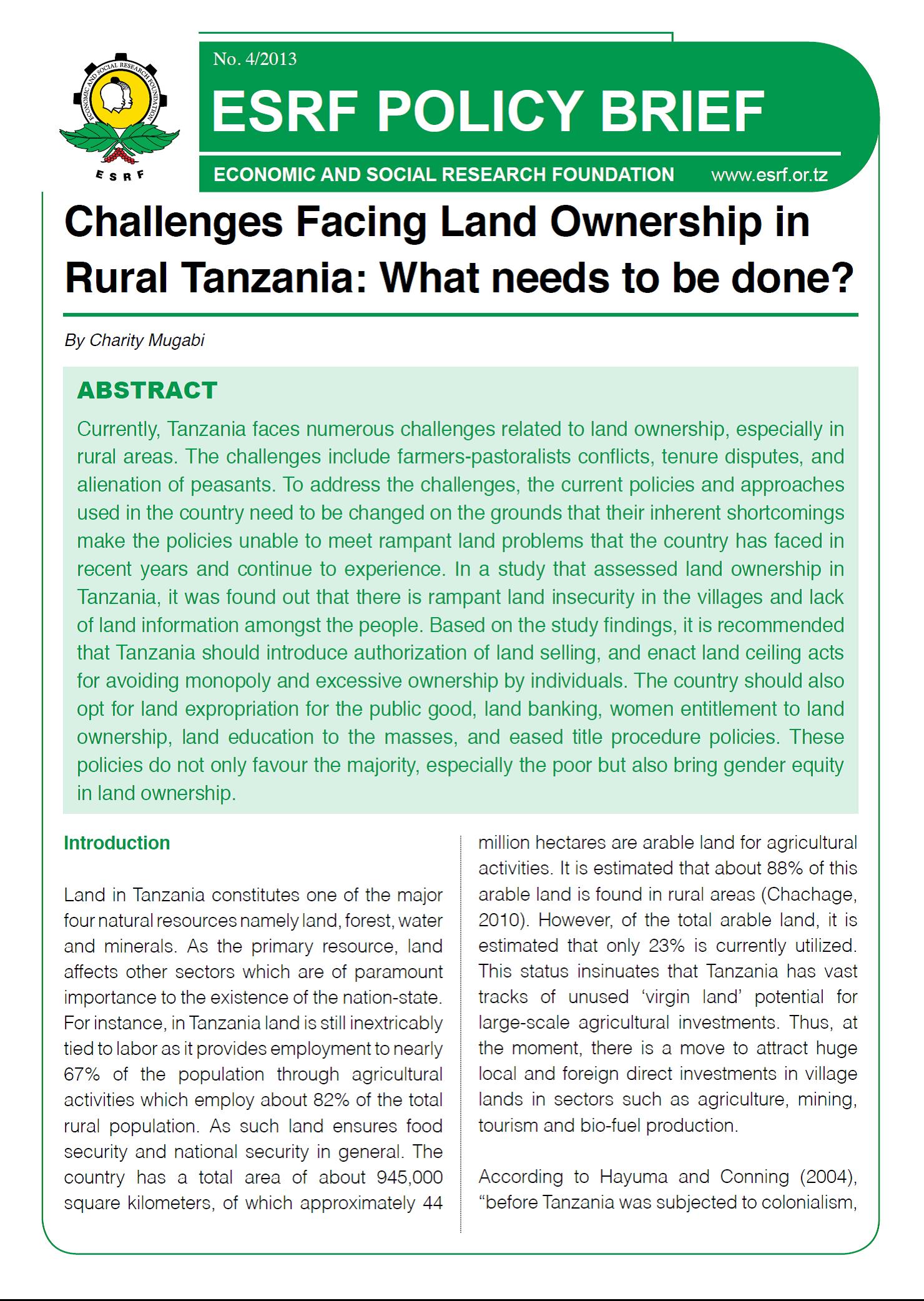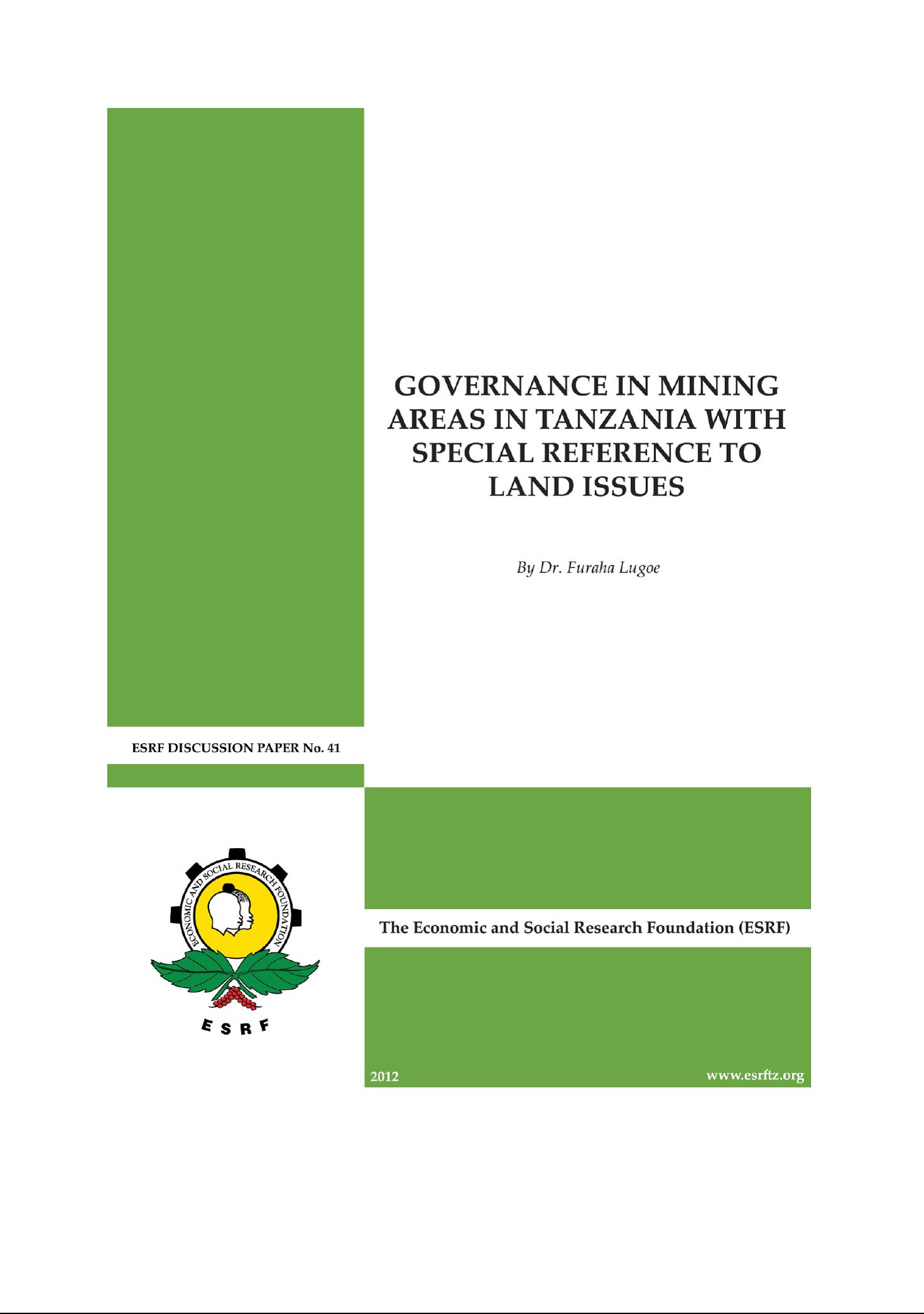Focal point
Location
The Economic and Social Research Foundation was established in 1994 as an independent, not-for-profit institution for research and policy analysis.
The formation of ESRF was based on the assumption that there was need and demand for an improved understanding of policy options and development management issues, and that the capacity for this was lacking in the Tanzania civil service.
ESRF addressed this gap by putting into place qualified Professional Staff, modest resources and a favourable research environment for the analysis and discussion of economic and social policy.
The primary objectives of the Foundation are to strengthen capabilities in policy analysis and development management and to enhance the understanding of policy options in the government, the public sector, civil society, and the donor community and the growing private sector
Members:
Resources
Displaying 1 - 5 of 5Land Owners Perception on Land Registration Procedure in Tanzania
Currently Tanzania faces numerous challenges regarding Land Registration Procedure in Tanzania as reflected in land owners perceptions on the procedure, especially in rural areas. This makes the need to improve the procedure compelling. However, the current Administrative, Financial, Legal, and Institutional aspects need to be taken into the consideration in promoting and improving the process of obtaining CCROs in the country.
Challenges Facing Land Ownership in Rural Tanzania: What needs to be done?
Currently, Tanzania faces numerous challenges related to land ownership, especially in rural areas. The challenges include farmers-pastoralists conflicts, tenure disputes, and alienation of peasants. To address the challenges, the current policies and approaches used in the country need to be changed on the grounds that their inherent shortcomings make the policies unable to meet rampant land problems that the country has faced in recent years and continue to experience.
Governance in Mining Areas in Tanzania with Special Reference to Land Issues
The economies of many countries such as the Gulf and Southern African States are to a considerable extent sustained by financial flows from extraction of mineral resources and fossil fuels. The discovery of such fortunes, in sufficiently viable quantities, can be a significant national blessing for effectively addressing development challenges. However, experience in other countries has shown that financial resources obtainable from mineral and fossil fuel extraction – the Extractive Industry, have not always assisted economic and social development.
Aligning and Harmonizing the Livestock and Land Policies of Tanzania
In light of persisting land use conflicts and marginal productivity on village lands, a research in the captioned topic was deemed necessary. This report makes a review of policies on land and livestock agriculture behind the backdrop of the Constitution of the United Republic of Tanzania, policies on land and agriculture, and aspirations for land reform. Violations in land rights and prevailing tenure insecurity lasting for decades have skewed mindsets of many users and the land administrators. Policy implementation and enforcement are in dire need of enhancement.
The Land Factor in Mining Gold Reserves in Tanzania
After three decades (following independence) of being overwhelmed by command-economy policies, in the 1980s the Tanzania’s gold mining industry benefited from policy reforms that started with the economic recovery programmes (ERP). These reforms freed in part the major means of production from state ownership. The accompanying paradigm shift allowed artisanal and small-scale miners (ASM) to register claims and retain much-needed foreign currency for rural development long before mining companies started operations.






